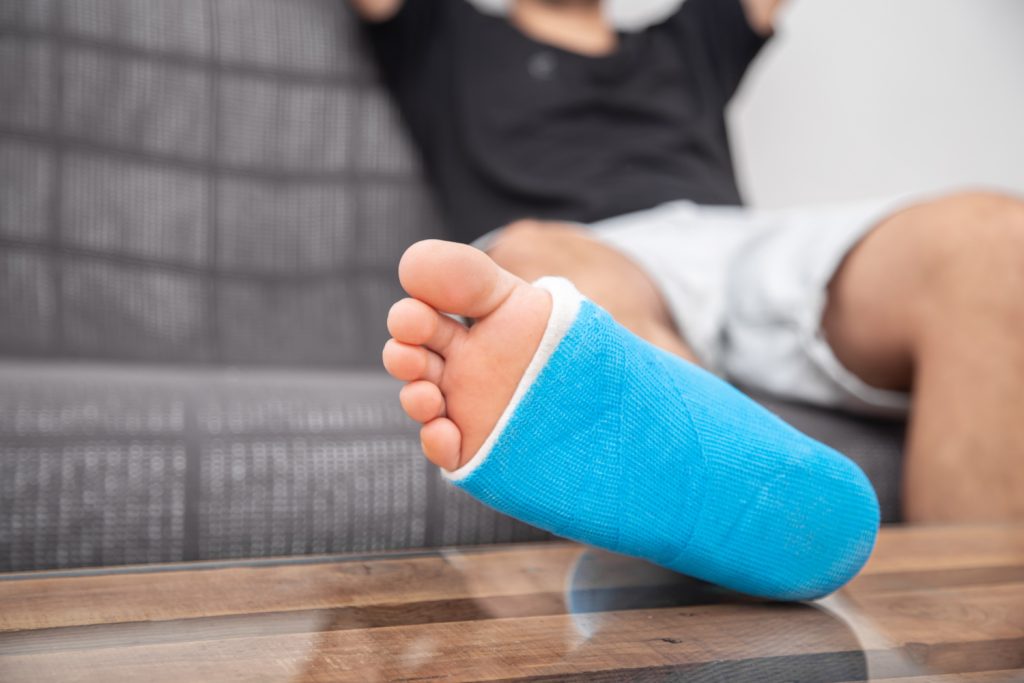Fractures and sprains! What’s the difference?
Have you ever experienced a fracture or sprain? Did they inform you that extreme pain indicates a fracture? In fact, a fracture is not always the reason. Both fractures and sprains may cause nearly equal amounts of pain! These are frequent injuries that can impact the body’s bones, ligaments, and soft tissues. So, what is the difference between them? What is the difference between fractures and sprains? Fractions Fractures affect the bones of the body. There are many different types of fracture and no two fractures are the same. Common causes of fractures are car accidents, falls, or sports injuries. Overuse can also lead to stress fractures, which are small cracks in the bones. Symptoms may include: Bone deformity Swelling or pain Muscle spasm Weak sensation Impaired mobility Sprains Sprains occur when a joint becomes too stressed, overextended, or even torn by the supportive ligaments that hold bones together and keep them in place. The severity of a sprain varies according to the severity of the condition. For example, in the case of a mild sprain, the ligament is stretched, but the joint remains stable. A moderate sprain, however, causes the ligaments to be partially torn and may affect joint stability. In the case of a severe sprain, the ligaments can tear almost completely, which may require surgery to repair them. Although they vary in severity, all sprains usually cause pain, swelling, bruising, and inflammation. Even if it’s just a stretch in the ligaments, it interferes with the joint’s working mechanism. The ankle is the joint most commonly sprained, and the risk of a sprained ankle increases if you’ve had a previous sprain. Is there a difference in treatment for fractures and sprains? If you have a fracture, you should consult a doctor. The doctor may ask you to take x-rays for a proper diagnosis, and you will need to wear a splint or cast. Manage the symptoms using the PRICE method. If you have a sprain, the PRICE method will also help. It includes: Protection to avoid further injuries. Rest, avoid exercise and reduce activity. You can use crutches to avoid bearing weight on the affected side. Order the crutches that you need from Al thiqa Pharmacy. Ice: Apply for no more than 20-30 minutes at a time and be sure to put a barrier between the ice and the skin such as a light towel. Compression by wrapping a compression bandage around the affected area. Remember that if you feel numbness or a tingling sensation, then it is too tight. Elevate the affected area and keep it above the level of the heart as much as possible to help reduce swelling. You can use pain relievers to relieve the pain. Can fractures and sprains be prevented? While it’s impossible to predict injuries, there are steps you can take to reduce your risk or prevent them from happening in the first place, for example: Maintain a healthy weight. Being physically fit. Doing daily stretching exercises. Wear appropriate shoes and appropriate equipment for different activities and sports. Eat a balanced diet that contains calcium and vitamin D. Warm up before any physical activity. Rearrange the furniture in the house to make it safer and to help prevent falls. Avoid exercising if you feel very tired or in pain. Ask your podiatrist about using arch supports in your shoes if you have flat feet.
Fractures and sprains! What’s the difference? Read More »



